Tag Archives for " home inspection "
Buying a home is one of life’s biggest moments. It’s exciting, emotional, and—let’s be honest—a little stressful too. And while the process is filled with ups and downs, there are some common mistakes that can quietly cost buyers thousands of dollars.
If you’re shopping for a home in Londonderry or exploring Southern NH houses for sale, you’ll want to avoid the things buyers do that cost them money. These missteps are easy to make but can be tough (and expensive) to fix.
Let’s walk through the top five mistakes so you can shop smart, save cash, and find a home you love—without the regret.
One of the top things buyers do that cost them money is skipping pre-approval.
It might seem like just extra paperwork, but it’s a game-changer. Pre-approval tells you exactly how much you can afford. It also helps you move fast when you find the one.
Here’s why skipping it hurts:
You might fall in love with a house you can’t afford.
Sellers may not take your offer seriously.
You could miss out on low-rate mortgage programs.
Buyers in Londonderry and Southern NH face real competition. If you’re not pre-approved, another buyer will likely beat you to it.

This one is huge. Many buyers think browsing Zillow or doing it all themselves will save money.
In reality, not working with a local REALTOR® is one of the sneakiest things buyers do that cost them money.
Here’s what you miss without a pro on your side:
Local market insight (hello, hidden gems!)
Smart negotiation skills that can save you thousands
Help spotting red flags before you’re stuck
The best part? As a buyer, your agent’s services are usually free. Sellers pay the commission!
So if you're eyeing Londonderry houses for sale or searching across Southern NH, a local expert is your secret weapon.
Sometimes buyers are tempted to skip the home inspection. Maybe they’re trying to win in a bidding war. Or they think the house looks perfect.
Please don’t skip it.
This is one of the riskiest things buyers do that cost them money down the road.
Here’s what can go wrong:
Hidden water damage
Costly electrical issues
Roof or foundation problems
A home might look fine on the outside but hide expensive problems inside. Inspections can cost a few hundred dollars. But they can save you thousands in surprise repairs.
In areas like Londonderry and Southern NH, where older homes are common, an inspection is a smart must-do.
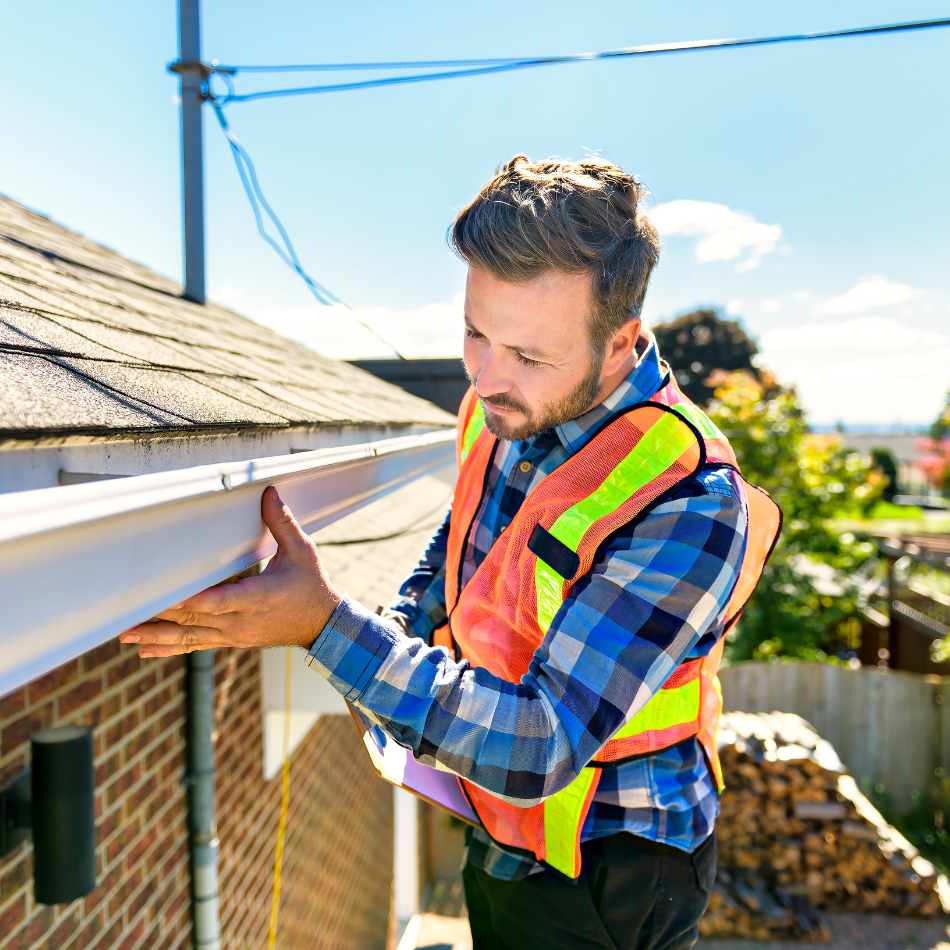
Buying a home is emotional—no doubt about it. You walk in, fall in love, and start planning where the couch goes.
But making decisions with your heart instead of your head? That’s one of the most expensive things buyers do that cost them money.
Emotions can cause you to:
Overbid on a house you can’t afford
Overlook serious problems during showings
Ignore your original budget or needs
It’s easy to get caught up in the “perfect home” feeling. That’s why it helps to have a REALTOR® by your side who can bring you back to earth—gently.
The key is balance. Love your future home—but be smart about it.
A lot of buyers focus on just the price of the house. But that’s only part of the picture.
One of the most common things buyers do that cost them money is not budgeting for the extras.
Here’s what else you need to plan for:
Closing costs (usually 2–5% of the home price)
Property taxes and homeowners insurance
Repairs, updates, and moving expenses
Some buyers also forget about future expenses like heating, yard maintenance, or homeowners’ association fees.
If you're eyeing Southern NH houses for sale, especially older or rural homes, some of these costs can really add up. Having a clear budget helps you avoid surprises.

We’ve seen it too many times: a buyer finds the perfect home, waits a day too long, and loses it.
The market moves fast—especially with Londonderry houses for sale and hot neighborhoods in Southern NH.
If you're pre-approved, have your REALTOR®, and know your budget—be ready to move when it feels right.
Waiting too long can cost you your dream home. Or push you into a bidding war with more buyers. Either way, it ends up costing you more.
Now that you know the top things buyers do that cost them money, here’s how to avoid them:
✅ Get pre-approved before you start shopping.
It’s fast, simple, and makes your offer stronger.
✅ Work with a REALTOR® who knows the local market.
They’ll guide you, protect your interests, and help you save.
✅ Always get a home inspection.
Even if the house looks perfect, double-check everything.
✅ Stick to your budget and use your head.
Your dream home shouldn’t come with a nightmare price tag.
✅ Know the real costs of homeownership.
Plan for the down payment, closing costs, and future expenses.

The housing market in Londonderry and across Southern NH is still competitive. That means homes move fast—and prices are strong.
But it also means buyers need to be sharp.
These areas have a mix of older homes, fixer-uppers, and newer builds. You’ll find cozy neighborhoods, rural properties, and even multi-family options.
A local REALTOR® will help you spot good deals, understand value, and avoid buying a money pit. They know which listings are fairly priced and which ones come with headaches.
If you’re looking at Londonderry houses for sale, you’re in one of the most in-demand areas of Southern New Hampshire. Don’t lose out—or spend more than you need to—just because you missed the fine print.
As a REALTOR® working right here in Southern NH, I’ve seen it all. I’ve watched buyers lose out on great homes because they didn’t have help. I’ve also helped smart buyers avoid costly mistakes—and find homes they truly love.
When you have a trusted agent by your side, everything changes:
You make confident choices.
You understand what you’re signing.
You know when to walk away—and when to act fast.
Buying a home should be exciting, not filled with regret.
So many of the things buyers do that cost them money are easy to avoid. It just takes a little planning, the right mindset, and a REALTOR® who has your back.
You deserve a smooth home-buying journey. One where you feel proud of the decision you made—and the home you bought.
If you’re getting ready to look at Londonderry houses for sale or explore the Southern NH real estate market, let’s connect. I’d love to guide you through every step—stress-free, mistake-free, and money-smart.

Let’s make sure you’re fully prepared, pre-approved, and protected through the whole journey. Whether you’re buying your first home or your forever home, I’m here to help you avoid the things buyers do that cost them money—and find a place that feels just right.
If you need more information on things buyers do that cost them money, or are ready to sell your house give us a call at (603) 883-8840. You can also sign up for your dream home search or reach out to Our Agents for more information. We’d love to help you with your real estate needs.
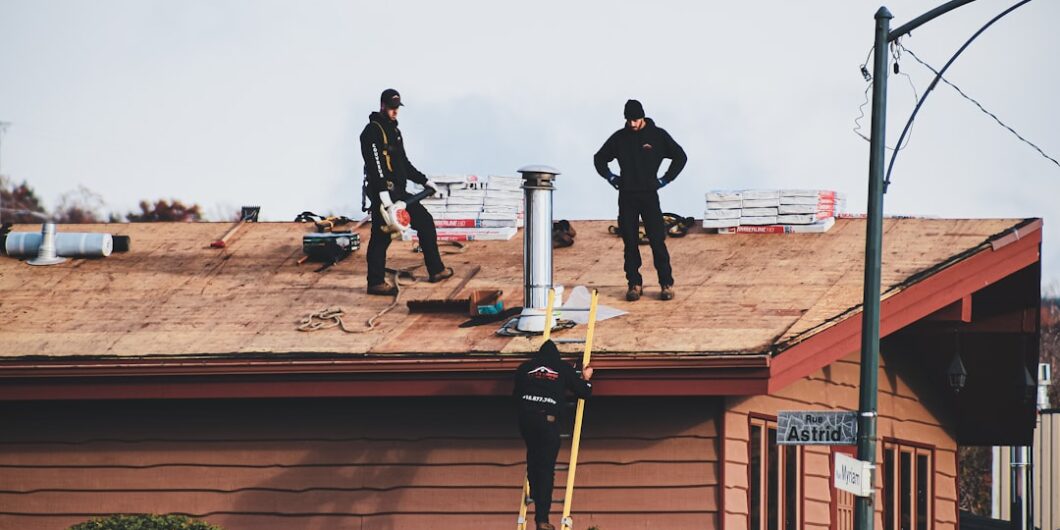
Buying or selling a house is exciting—but it can also feel overwhelming, especially when foundation problems pop up. Whether you're scoping out South Hudson houses for sale or checking out Southern NH houses for sale, knowing how to spot and solve major foundation issues can save you from a ton of stress (and money!).
In this blog, we’re diving into fixes for major foundation issues. These repairs may sound intimidating, but with the right pros and smart choices, your dream home doesn't have to turn into a money pit.
Let’s break it all down in simple terms so you can feel confident and ready, whether you’re buying, selling, or just curious about how to care for your home’s foundation.
Slab jacking sounds fancy, but it’s actually a pretty clever and cost-effective fix. If part of the foundation has settled or sunk, pros can inject a mix under the concrete to lift it back up.
This is often used for:
Sidewalks
Garage floors
Patios
Driveways
Basement floors
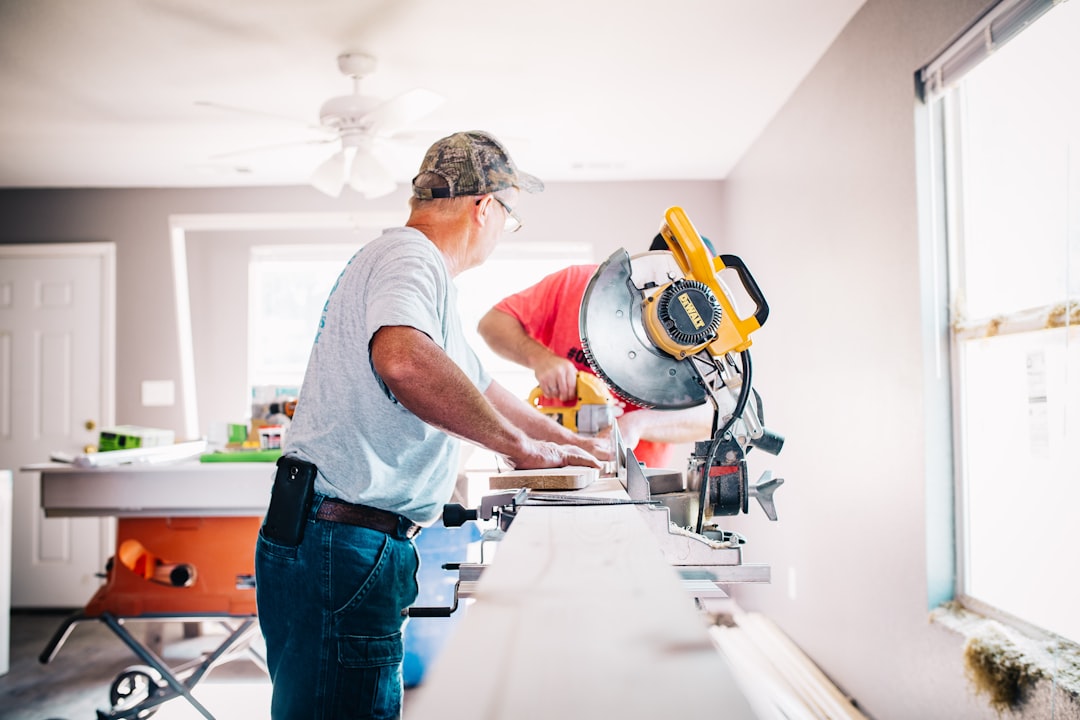
It’s a great choice when you notice uneven flooring or cracking in areas that were once level. Slab jacking is quicker and cheaper than a full replacement.
If you’re walking through Southern NH houses for sale and notice dips or sunken spots in floors or slabs—this could be the fix!
Piering (also called underpinning) is one of the more serious fixes for major foundation issues. It’s used when a foundation is shifting or sinking deeply. Crews install steel or concrete piers under the foundation, driving them down to stable soil or rock.
Here’s why homeowners love it:
Adds long-term support
Stops further sinking
Lifts and levels the foundation
It’s perfect for homes on clay-heavy soil or in areas with frequent shifting. If you’re eyeing South Hudson houses for sale and hear “foundation piers,” don’t panic—this fix can actually add value to the property.
Do the basement walls look like they’re bending in or bulging out? That’s usually a sign of pressure from outside soil. Wall anchors are a popular fix.
Pros install plates inside the basement and connect them to anchor rods outside, pulling the wall back into place over time.
Why it works:
Stops the wall from bowing further
Can even straighten walls
Prevents water leaks and long-term damage
This fix is pretty common in older homes, especially those found among Southern NH houses for sale. It’s one of those repairs that feels like a power move—fixing a scary-looking issue in a smart and long-lasting way.
Sometimes you don’t need steel. Carbon fiber straps are a modern solution for bowed or cracked basement walls. These ultra-strong straps are glued to the wall using high-strength epoxy. They hold the wall steady and prevent it from shifting.
Benefits include:
Less invasive than wall anchors
Fast to install
Low-maintenance and nearly invisible
They work best for minor to moderate bowing. If you’re shopping for South Hudson houses for sale and see a few small cracks, ask if carbon fiber straps were used. If not, they could be a solid fix.

Sometimes the problem isn’t the house—it’s the soil underneath. Loose or shifting soil can lead to sinking foundations. Soil stabilization strengthens the ground using chemical injections or grout to lock the soil in place.
It helps:
Prevent future settling
Improve drainage
Reduce shifting during freeze-thaw cycles
This fix often goes hand-in-hand with piering or slab jacking. If a home has seen repeat settling, especially around Southern NH homes near rivers or slopes, this method gives the ground more staying power.
Water can be a foundation’s worst enemy. It soaks into the soil, causes it to expand, and pushes against the walls. Over time, this causes cracks, leaks, and even shifts in the foundation.
Here are easy drainage fixes that can make a big impact:
Add or fix gutters and downspouts
Extend downspouts away from the house
Re-grade the yard to slope water away
Install a French drain or sump pump
If you're checking out South Hudson houses for sale or walking through a soggy backyard in Southern NH houses for sale, poor drainage is a big red flag—but it’s also one of the easiest things to fix early.
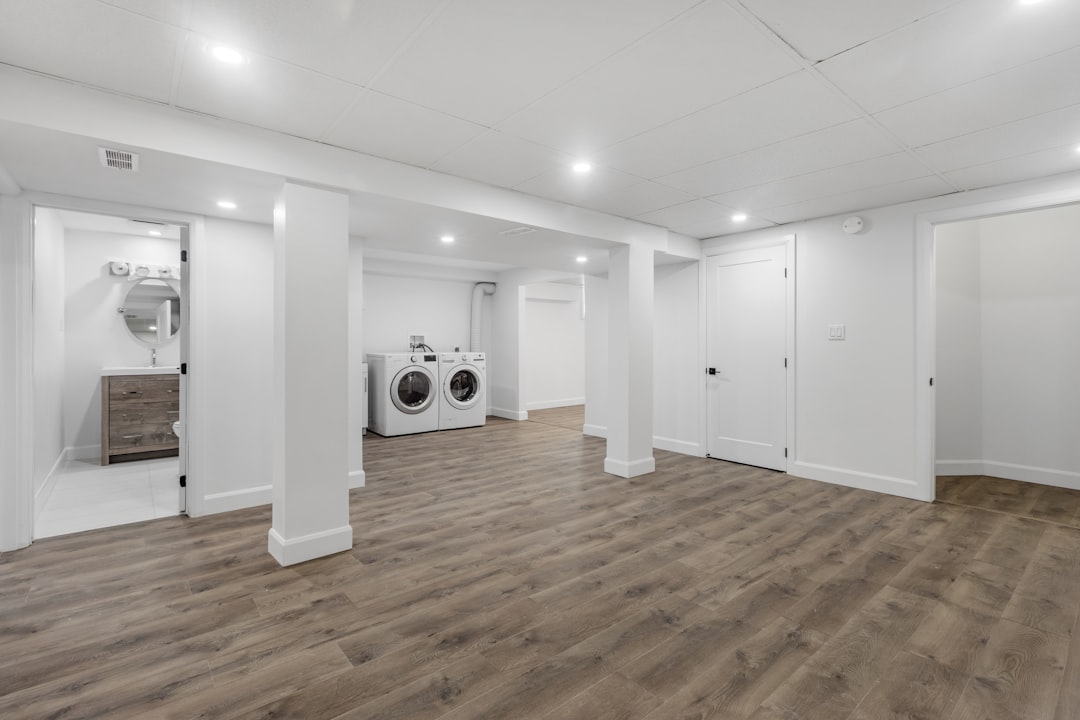
Not every crack means disaster. But it’s important to fix them before they grow. Epoxy or polyurethane foam can be injected into small foundation cracks to seal them up. This stops moisture from getting in and keeps the structure strong.
Crack repair is:
Fast
Affordable
Very effective if done early
If you see hairline cracks while browsing homes, don’t worry too much. Ask if they’ve been sealed. For Southern NH houses for sale, this kind of maintenance is a sign the seller took good care of the property.
Even if things look fine on the surface, foundation problems can hide. A trained inspector knows what to check and where to look. Before you buy—or sell—a home with signs of foundation trouble, call in a pro.
Here’s what they’ll do:
Check for slope and soil issues
Measure cracks
Inspect the basement and crawlspace
Look for signs of water damage
This small investment can save you thousands and bring peace of mind. If you're interested in South Hudson houses for sale, asking for a foundation check can give you major confidence in your decision.
Let’s be honest—foundation issues can sound scary. But with today’s smart solutions, most problems have a fix. These fixes for major foundation issues aren’t just possible—they’re common.
Whether it’s piering, wall anchors, slab jacking, or just sealing a few cracks, there’s a solution for every problem. The key is catching it early, knowing what to look for, and working with trusted local experts.
If you're browsing South Hudson houses for sale or scoping out beautiful Southern NH houses for sale, don’t let a crack or slope ruin a great opportunity. Armed with the right info and a little help, you’ll find a home that’s both beautiful and built to last.
Need help finding a solid home in South Hudson or Southern NH? Let’s chat! I’m here to help you spot the red flags, find the right pros, and land the perfect home—without the foundation fears.
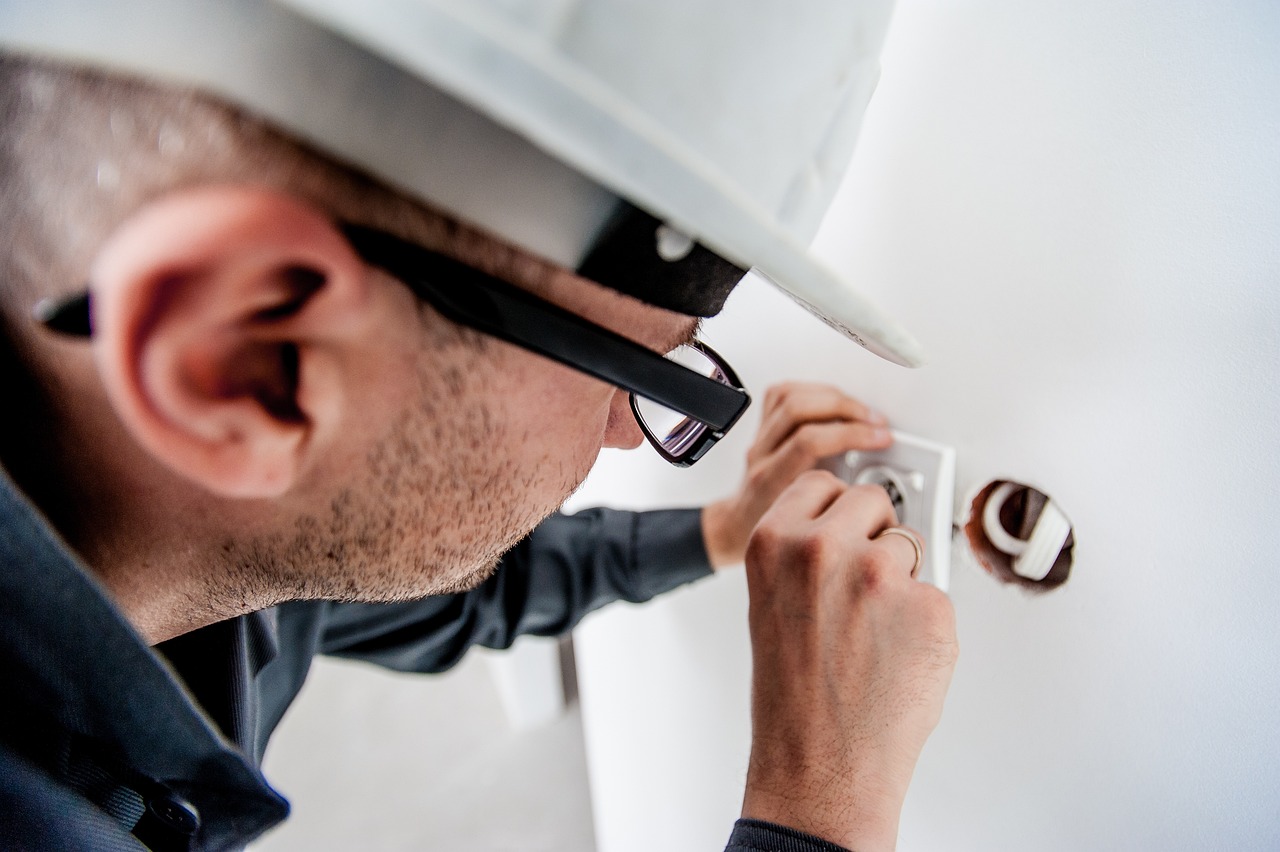
If you need more tips on Fixes for Major Foundation Issues, or are ready to sell your house give us a call at (603) 883-8840. You can also sign up for your dream home search or reach out to Our Agents for more information. We’d love to help you with your real estate needs.

Buying a home is exciting, but a home inspection can bring unexpected surprises. If you're looking at South Hudson houses for sale or anywhere in Southern NH houses for sale, this step is crucial. It helps uncover hidden issues and protects you from costly mistakes. Knowing what to expect from a home inspection can make the process less stressful and more rewarding.
A home might look perfect at first glance, but inspectors dig deeper. They check for issues buyers may overlook. The inspection report helps you understand the home's condition before making a final decision.
For buyers in Southern NH houses for sale, an inspection can mean the difference between a great deal and a costly mistake. Sellers also benefit by fixing problems early, making their home more attractive to buyers.
A licensed home inspector examines the property. They assess major systems, including:
Foundation and structure – Cracks or shifting can be costly to repair.
Roof and attic – Leaks, missing shingles, or insulation issues are common.
Plumbing and electrical systems – Outdated wiring or leaks can be safety hazards.
Heating and cooling systems – HVAC problems can lead to expensive repairs.
Appliances and general safety – Everything from water heaters to smoke detectors gets checked.
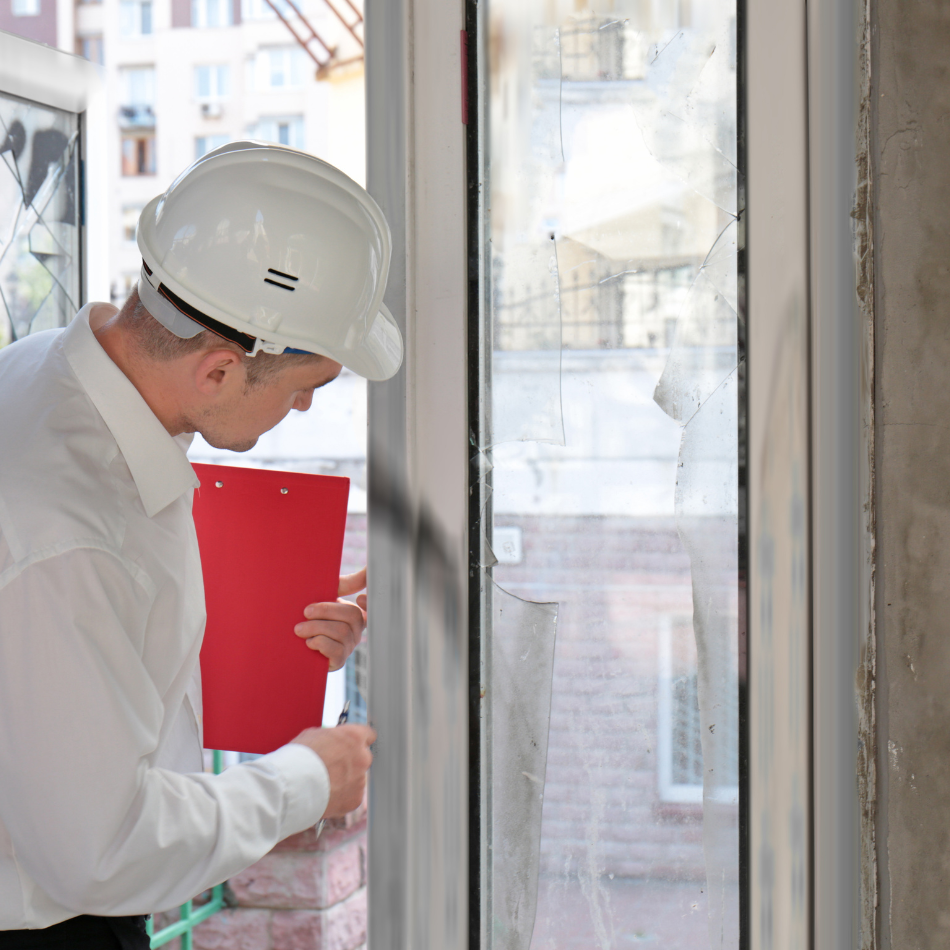
Even well-maintained homes have issues. Here are some of the most common problems:
Roof damage – Missing shingles or leaks can signal trouble.
Electrical hazards – Outdated wiring, missing GFCI outlets, or overloaded circuits.
Plumbing leaks – Dripping faucets, water stains, or slow drains.
HVAC concerns – Poor airflow, outdated systems, or dirty filters.
Foundation cracks – Small ones may not be serious, but large cracks need attention.
Pest issues – Termites or rodents can cause unseen damage.
If you’re eyeing South Hudson houses for sale, these issues might come up. The key is knowing what’s manageable and what’s a deal-breaker.

Once the inspector completes the assessment, they provide a detailed report. This document highlights potential concerns and estimates repair costs. Buyers can then:
Proceed with the purchase – If the issues are minor, you might move forward.
Negotiate repairs or credits – Sellers may fix problems or offer a price reduction.
Walk away – If the issues are too severe, you can back out without penalty.
If you're selling a home in Southern NH houses for sale, here’s how to get ready:
Clean and declutter – Inspectors need access to major systems.
Fix minor repairs – Leaky faucets, missing outlet covers, and loose doorknobs should be addressed.
Provide maintenance records – Show proof of HVAC servicing, roof repairs, or appliance updates.
Test everything – Make sure lights, outlets, and smoke detectors work.
Buyers should also prepare by:
Attending the inspection – Seeing issues firsthand helps you understand the report better.
Asking questions – Inspectors can clarify concerns and offer maintenance tips.
Keeping perspective – No home is perfect; focus on major concerns over minor cosmetic flaws.
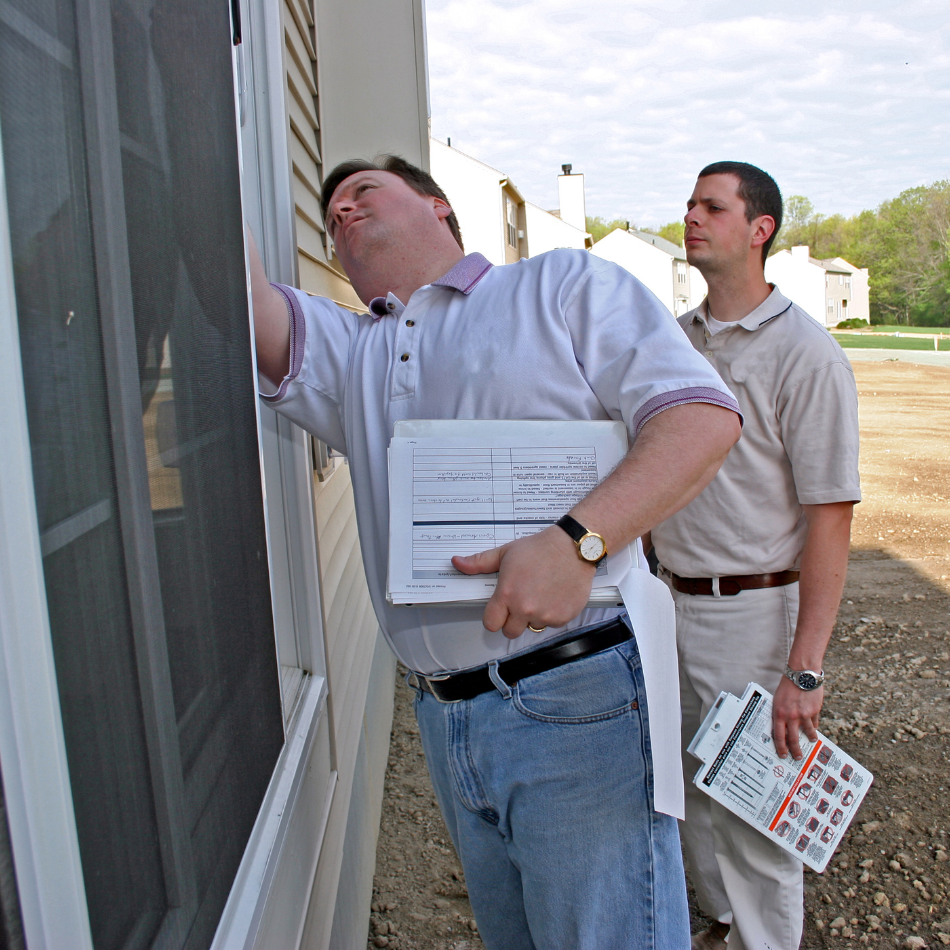
A home inspection is a vital step in the buying process. It gives you a clear picture of the home’s condition and helps you make an informed decision. Whether you're considering South Hudson houses for sale or browsing Southern NH houses for sale, being prepared makes all the difference.
Want expert guidance on buying or selling? Let’s connect and make your real estate journey stress-free!
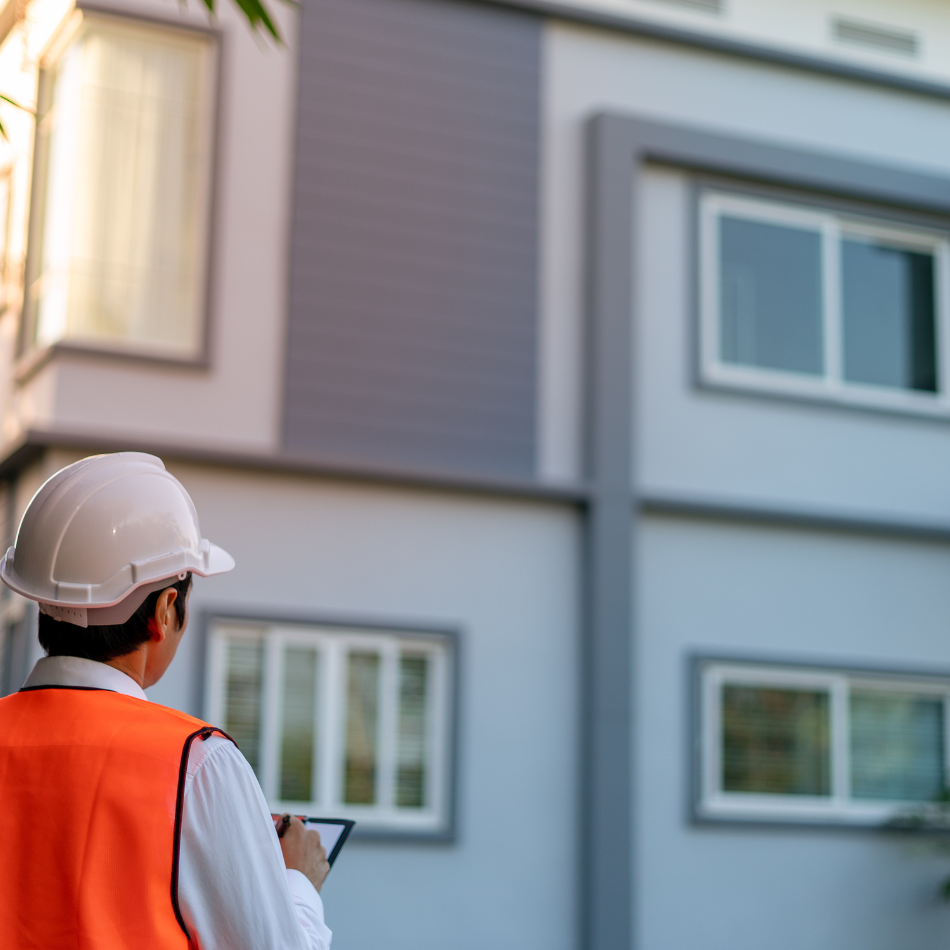
If you need more information on what to expect from a home inspection, or are ready to sell your house give us a call at (603) 883-8840. You can also sign up for your dream home search or reach out to Our Agents for more information. We’d love to help you with your real estate needs.

Selling your home can be stressful, especially in today’s fast-paced real estate market. Buyers expect homes to be in great condition, and unexpected issues can delay or even derail a sale. A pre-listing inspection is a powerful tool that can help sellers avoid last-minute surprises, speed up the process, and gain an advantage in negotiations.
Many sellers wait for buyers to order an inspection, but being proactive can save you time, money, and headaches. Let’s explore why a pre-listing inspection might be one of the best decisions you make before putting your home on the market.
Imagine you’ve accepted an offer on your home, and the buyer’s inspection reveals unexpected problems. Now, you’re faced with tough decisions—fix the issues, lower your price, or risk losing the deal altogether. A pre-listing inspection helps you uncover potential problems before buyers do, giving you time to address them on your terms.
Common issues that inspections reveal include:
Roofing problems
Electrical or plumbing issues
HVAC system concerns
Structural damage
Pest infestations
By handling these issues early, you prevent stressful surprises and keep the selling process on track.
Today’s buyers are more informed than ever. They want a home that feels like a safe investment. When you provide a pre-listing inspection report, it shows buyers you have nothing to hide. Transparency builds trust, and trust leads to stronger offers.
Buyers may also feel more comfortable making a competitive offer if they know there won’t be major repair surprises down the road. This confidence can lead to a faster sale and even multiple offers.

Deals often slow down—or fall apart—when a buyer’s inspection uncovers unexpected problems. The buyer may want to renegotiate, request repairs, or back out completely. A pre-listing inspection eliminates many of these roadblocks.
With fewer surprises, the transaction can move forward smoothly. Buyers may even feel comfortable waiving their own inspection contingency, helping you close the deal faster.
A pre-listing inspection puts you in control. Instead of being caught off guard by a buyer’s demands, you can make necessary repairs ahead of time or adjust your asking price accordingly. This reduces the chances of last-minute renegotiations that could cost you thousands.
If your inspection report shows your home is in great shape, you have even more leverage. Buyers are less likely to haggle over small details when they see a thorough inspection has already been done.

A well-maintained home attracts more buyers and can lead to higher offers. When buyers know a home has been properly inspected and cared for, they see it as a better investment.
Small repairs can make a big difference. Fixing leaky faucets, patching up drywall, replacing worn-out flooring, or updating light fixtures can make your home feel move-in ready. This can justify a higher asking price and make your home stand out in a competitive market.
One of the biggest reasons real estate deals fall through is buyer uncertainty. If buyers worry about hidden problems, they may hesitate to commit. A pre-listing inspection helps eliminate this fear by providing clear, upfront information about the home’s condition.
Less uncertainty means buyers are more likely to move forward with confidence, reducing the risk of them backing out of the deal.
In places like Nashua, Hudson, Londonderry, and Litchfield, homes are in high demand. Buyers have plenty of options, and they’re looking for homes that offer the best value. A pre-listing inspection gives your home a competitive edge by showing it’s well-maintained and ready for new owners.
In a seller’s market, this can help attract more serious buyers. In a buyer’s market, it reassures hesitant buyers that your home is a solid choice. Either way, it helps your home stand out.

Selling a home comes with a lot of moving parts, and last-minute surprises can make the process overwhelming. A pre-listing inspection reduces the stress by giving you a clear picture of what to expect. You’ll feel more prepared, and you won’t have to worry about unexpected repairs derailing your plans.
Taking proactive steps can make the entire experience smoother and more predictable, which benefits both you and the buyer.
A pre-listing inspection isn’t mandatory, but it offers many benefits that can make selling your home easier, faster, and more profitable. If you’re thinking about selling, consider getting an inspection before listing. It’s a small investment that can save you time, stress, and money in the long run.
Whether you're selling in Nashua, Hudson, Londonderry, or Litchfield, being proactive can help you get the best possible outcome.
Thinking about selling your home? Let’s chat about how a pre-listing inspection can help you get top dollar.

📞 Call us at (603) 883-8840 for expert advice and personalized real estate guidance. You can also sign up for your dream home search or **reach out to **Our Agents for more information. We’d love to help you with your real estate needs!

When buying a home, one of the most important steps is the home inspection. It gives you a clear picture of a property's condition and helps protect your investment. Whether you’re exploring Londonderry Houses for Sale or other Southern NH Houses for Sale, understanding the home inspection process is key to making an informed decision. In this blog, we’ll answer the most common home inspection questions every buyer should ask before moving forward with a purchase.
A home inspection is a thorough examination of a property’s structure and systems. It’s typically done by a licensed professional who will check everything from the foundation to the roof. A standard home inspection covers:
Structural Integrity: The foundation, walls, and roof.
Systems: Plumbing, electrical, heating, and cooling.
Appliances: Water heaters, stoves, and other major appliances.
Exterior: The home’s siding, windows, doors, and landscaping.
If you’re looking at homes in Londonderry or other parts of Southern NH, the inspector will help identify both minor and major issues that could affect the home’s value or safety.
A typical home inspection takes about 2-4 hours, depending on the size and condition of the home. Larger homes, like some of the charming Southern NH houses for sale, may take longer to inspect. The inspector will carefully assess each part of the home, so don't be surprised if it takes a little time.
It’s a good idea for buyers to be present during the inspection to ask questions and get a better understanding of the property’s condition. You’ll also receive a detailed report afterward with all of the findings.
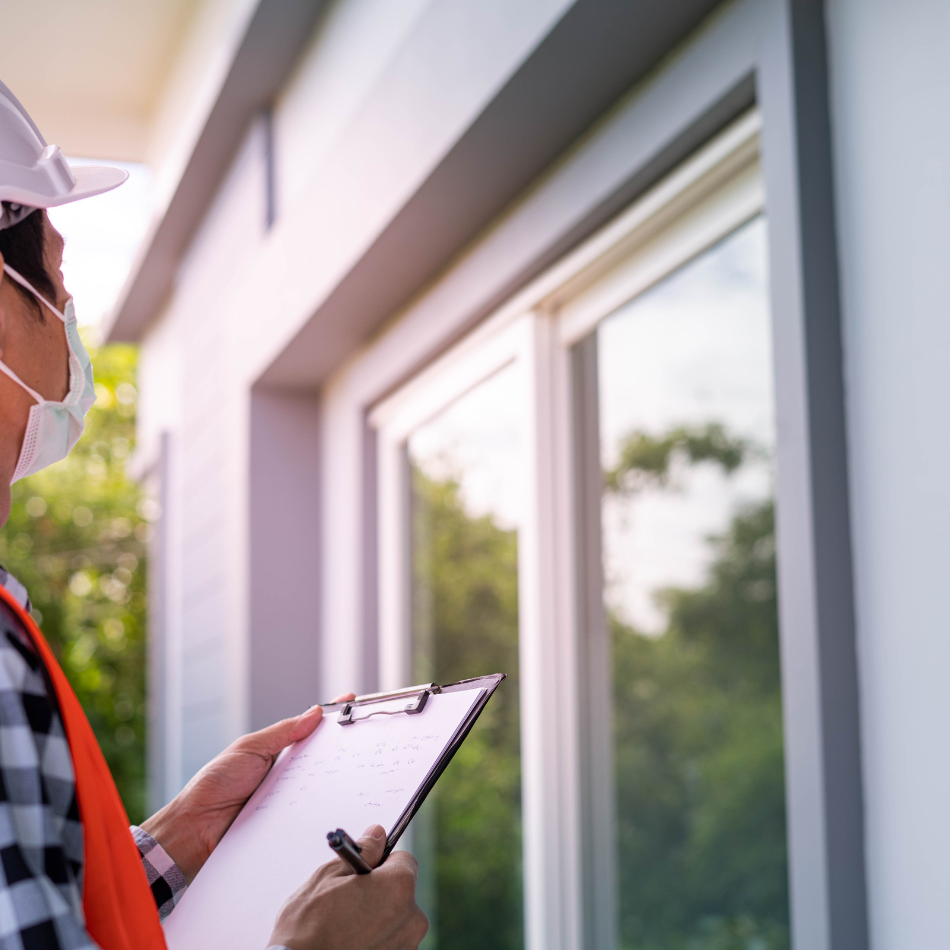
While every home inspection is unique, some issues are more common than others. These can include:
Roof Problems: Missing shingles or damage due to age.
Plumbing Leaks: Leaks under sinks or behind walls.
Electrical Issues: Outdated wiring or non-working outlets.
Foundation Issues: Cracks in the foundation or basement walls.
For buyers looking at homes in Southern NH, it’s important to be aware that older homes may have more wear and tear. Even in newer homes, though, small issues can be identified that could become bigger problems later on.
It’s highly recommended to be there during the home inspection. Being present allows you to:
Ask the inspector questions about the home.
See the issues firsthand.
Get a better understanding of the home’s overall condition.
For those considering Londonderry houses for sale or other homes in Southern NH, being present gives you the opportunity to address concerns immediately and ensure you're fully informed before making any decisions.
If the inspection reveals issues, you have several options:
Request Repairs: You can ask the seller to make repairs before the sale.
Negotiate a Lower Price: If there are significant issues, you might be able to lower your offer to reflect the cost of repairs.
Walk Away: In some cases, if the issues are too significant, you might decide to back out of the deal.
In Southern NH, especially with homes in popular areas like Londonderry, negotiations after the inspection can be a common part of the buying process. It’s important to work with a REALTOR who can guide you through these discussions.

The cost of a home inspection varies depending on the size of the property and location. On average, you can expect to pay between $300 to $600 for a standard inspection. Larger homes, like some of the beautiful homes in Londonderry, may cost more.
While it’s an added expense, a home inspection is a small price to pay to avoid potential costly surprises down the road. Think of it as an investment in your future home.
While it’s not legally required, skipping the home inspection is not recommended. Even if you love the home, it’s important to know about any hidden issues before committing. Many buyers in Southern NH, including those searching for Londonderry houses for sale, opt for an inspection because it provides peace of mind.
In a competitive market, some buyers may waive the inspection to make their offer more appealing. However, this can be risky. Without an inspection, you could end up with an expensive surprise later.
After the inspection, you’ll receive a detailed report of everything the inspector found. It’s important to review the report carefully and decide how to proceed. If significant issues are discovered, you’ll need to:
Discuss your options with your REALTOR.
Consider negotiating with the seller for repairs or a lower price.
In some cases, walk away if the issues are too severe.
For buyers looking at homes in Londonderry or other Southern NH Houses for Sale, your REALTOR will be a valuable resource to help you make the right decision based on the inspection results.

A home inspection is one of the most important parts of the home-buying process. It helps you understand the true condition of a property and protects you from unexpected costs down the road. Whether you’re exploring homes in Southern NH or have your eye on a property in Londonderry, asking the right home inspection questions can ensure you’re making a sound investment.
If you’re ready to begin your home-buying journey, don’t hesitate to reach out. A professional REALTOR can guide you through the entire process, from finding the perfect home to negotiating after the inspection.

If you have more home inspection questions, or are ready to sell your house give us a call at (603) 883-8840. You can also sign up for your dream home search or reach out to Our Agents for more information. We’d love to help you with your real estate needs.
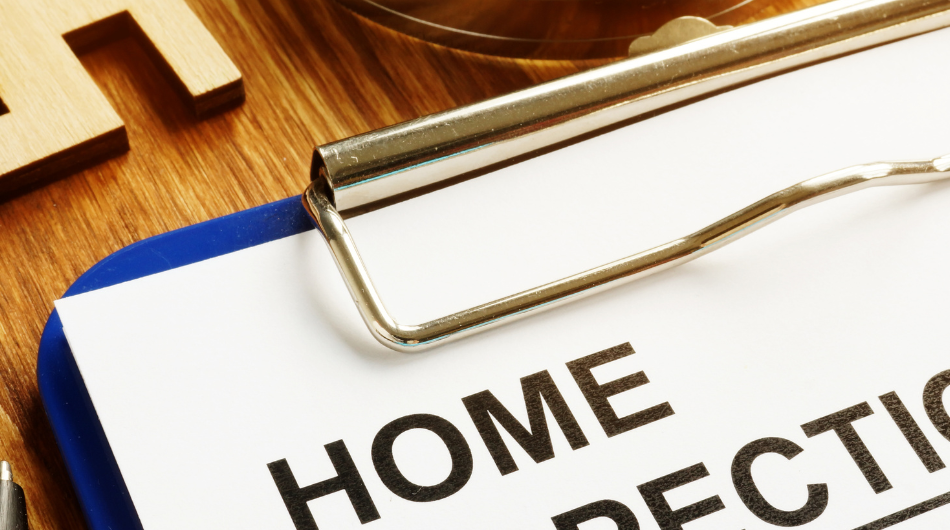
As a REALTOR in New Hampshire, you're often faced with many decisions while guiding your clients through the home-buying process. One such decision is: Should you attend your client's home inspection? This is an important question, and the answer can vary depending on the situation. In this blog, we'll explore the pros and cons of attending your client's home inspection, discuss how it can benefit both you and your clients, and help you decide the best approach for each unique situation.
Before diving into the question of should you attend the client's home inspection, let's take a moment to understand what it involves. A home inspection is a thorough examination of a property's condition conducted by a professional inspector. The inspector checks various aspects of the home, including the roof, plumbing, electrical systems, and more. The goal is to identify any issues that could affect the property's value or safety.
Why It Matters
A home inspection provides valuable information about the condition of the home. For buyers, it’s an opportunity to uncover potential problems before finalizing the purchase. For sellers, it helps address issues that could affect the sale.
If your clients are looking at homes in South Hudson, for example, a home inspection can reveal important details about the property’s condition. It’s a crucial step in making sure they’re making a wise investment.
Building Stronger Relationships
Attending the home inspection shows your clients that you’re invested in their home-buying journey. It helps build trust and demonstrates your commitment to their best interests. When clients see you actively involved, they’re more likely to feel supported and valued.
Example: Imagine your clients are considering a beautiful home in South Hudson. By attending the inspection, you can provide reassurance and answer any questions they may have about the property or the process.
Gaining Insight into the Property
Being at the inspection allows you to see firsthand the condition of the home. This knowledge can be incredibly valuable when discussing repair requests or negotiating with the seller. Understanding the issues helps you provide better advice to your clients on how to handle them.
Example: If the inspection reveals some issues with the roof or plumbing in a South Hudson property, you can offer insights on potential costs or solutions, helping your clients make informed decisions.
Facilitating Communication
If issues arise during the inspection, being there allows you to communicate directly with the inspector and your clients. You can help interpret the inspector's findings and discuss potential next steps. This immediate communication can streamline the process and reduce misunderstandings.
Example: Suppose the inspector identifies a problem with the electrical system in a home your clients are eyeing in South Hudson. Being present allows you to quickly relay this information to your clients and discuss possible actions, such as requesting repairs or adjusting the offer.
Showing Professionalism
Attending the home inspection can enhance your professional image. It shows that you’re thorough and dedicated to ensuring a smooth transaction. This can lead to positive reviews and referrals from satisfied clients.
Example: Your clients might be impressed by your proactive approach and willingness to be involved in every step of the process, leading to positive word-of-mouth and future business opportunities.
Helping with Negotiations
If the inspection uncovers significant issues, being present can help you advocate effectively for your clients. You can use your firsthand knowledge to negotiate repairs or adjustments to the sale price based on the inspection findings.
Example: If the inspection reveals that the HVAC system needs replacement in a South Hudson home, you can use this information to negotiate a lower price or request that the seller makes the necessary repairs before closing.

While there are many benefits to attending a home inspection, there are also situations where it might not be necessary. Here are a few scenarios where attending might not be as crucial:
If the Inspector is Highly Experienced
If the home inspector is highly experienced and known for their thorough reports, you might feel comfortable relying on their findings without needing to be present. Ensure that you trust the inspector’s expertise and have confidence in their ability to provide a detailed report.
If Your Clients Are Experienced
If your clients have bought and sold multiple homes before, they might be familiar with the inspection process and comfortable handling any issues that arise on their own. In this case, they might prefer to manage the inspection process independently.
If the Inspection is Routine
For properties that are in excellent condition or are new construction, the inspection might be relatively routine with few or no issues. In such cases, attending the inspection may not add significant value.
Example: If your clients are looking at new homes or well-maintained properties in South Hudson, such as those new listings, the inspection might be straightforward and less likely to uncover major issues.

Deciding whether to attend a home inspection involves considering several factors. Here’s how you can make the best choice for each situation:
Evaluate the Property’s Condition
Consider the age and condition of the property. Older homes or properties in less-than-ideal condition might benefit more from your presence during the inspection. For newer homes or those in great shape, attending might be less critical.
Example: If your clients are looking at historic homes in South Hudson, attending the inspection could be more beneficial due to the potential for hidden issues.
Know Your Clients’ Preferences
Discuss with your clients whether they would like you to attend the inspection. Some clients might appreciate your presence for reassurance, while others might prefer to handle it on their own.
Example: If your clients are first-time homebuyers exploring South Hudson, they might feel more comfortable having you there to answer questions and guide them through the process.
Consider the Inspector’s Reputation
Research the inspector’s reputation and ensure they are known for thorough and reliable work. If you have confidence in their abilities, you might decide it’s less necessary to attend.
Example: If the inspector has glowing reviews and a track record of providing comprehensive reports, you might feel comfortable relying on their findings without attending.
Assess the Importance of the Inspection
If the inspection is a critical part of the transaction, such as uncovering major issues or determining the final price, attending might be more important. For routine inspections, it might be less crucial.
Example: If the inspection is a deal-breaker for your clients due to specific concerns, being there to help navigate the process could be essential.
If you decide to attend the home inspection, here are some tips to ensure you make the most of the experience:

Deciding whether to attend your client’s home inspection is a crucial decision that depends on various factors. By weighing the benefits, considering the property’s condition, understanding your clients’ preferences, and assessing the importance of the inspection, you can make the best choice for each situation. Attending the inspection can enhance your professional image, build stronger client relationships, and provide valuable insights for negotiations.

It's completely up to the buyers and their agent! If you want an experienced agent to assist you with your home-buying journey, including attending inspections and navigating the process, contact us today. Whether you’re looking at South Hudson houses for sale or exploring options in other Southern NH areas, we’re here to help you make informed decisions and achieve your real estate goals.
Let’s ensure you have a smooth and successful home-buying experience. Reach out to us and get started today!
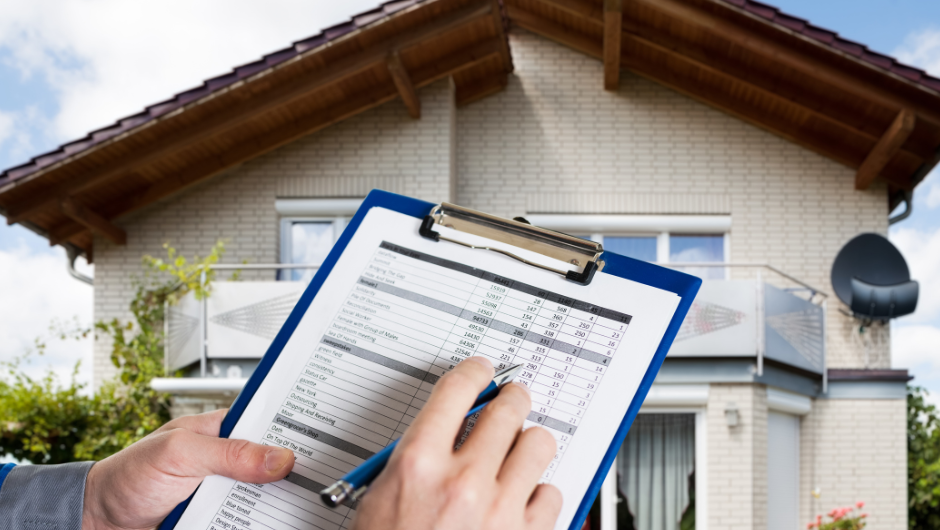
What do you need to know about home inspections? Are you thinking about getting your house inspected? This is an important step whether you're buying or selling a home. Here’s everything you need to know about getting your house inspected.
Why Is a Home Inspection Important?
Getting your house inspected is crucial. Home inspections help identify any potential issues with a property. It gives buyers peace of mind and can help sellers fix problems before listing the home. If you’re looking at South Hudson houses for sale, knowing that a thorough inspection has been done can make your decision much easier.
What Does a Home Inspector Do?
A home inspector checks many parts of the house, including:
Roof: Looks for leaks, damage, and the condition of shingles.
Foundation: Checks for cracks or other structural issues.
Plumbing: Ensures there are no leaks or faulty pipes.
Electrical System: Makes sure all wiring is safe and up to code.
Heating and Cooling Systems: Checks the furnace, air conditioning, and ventilation.
Interior and Exterior: Looks at walls, ceilings, floors, windows, and doors.

When you're exploring South Hudson houses for sale, having a clear understanding of these elements is essential.
Before getting your house inspected, here are some tips to get ready:
Clean the House: A clean house makes it easier for the inspector to do their job.
Provide Access: Make sure the inspector can access all areas, including the attic, basement, and garage. This makes the home inspection process that much easier for the inspector.
Make Repairs: Fix minor issues like leaky faucets or broken windows before the inspection.
Gather Documents: Have any repair or maintenance records ready for the inspector.
This preparation can also help when you’re interested in South Hudson houses for sale, as you can better understand what might need attention in a new home.

During home inspections, the inspector will take a few hours to look over the house. They might take photos and notes to include in their report. It’s a good idea to be present during the inspection so you can ask questions and learn more about the property. This is particularly useful when considering South Hudson houses for sale, as you’ll gain valuable insights.
Once the inspection is complete, the inspector will provide a detailed report. This report will list any issues found during the inspection. As a buyer, you can use this information to negotiate repairs or price adjustments with the seller. As a seller, addressing these issues can make your home more attractive to potential buyers. If you're buying one of the South Hudson houses for sale, this report can be a powerful tool in your negotiation. Home inspections are a very important part of the home purchase process.
The cost of getting your house inspected can vary. On average, it might cost between $300 and $500, depending on the size and location of the home. If you are inspecting a rural home it may cost substantially more due to water, septic and other needed inspections. While this is an additional expense, it’s worth it for the peace of mind it provides. For those looking at South Hudson houses for sale, budgeting for an inspection is a smart move.
When getting your house inspected, it’s important to choose a qualified inspector. Look for someone with good reviews and proper certifications. Ask friends or your REALTOR for recommendations. A good inspector will provide a thorough and accurate report. This is especially important when checking out South Hudson houses for sale, as a reliable inspection can help you make the best choice.
Getting your house inspected is a key step in the home buying or selling process. It helps identify potential problems and provides valuable information about the property. By knowing what to expect and how to prepare, you can make an informed decision and the inspection process will go smoothly.
If you have any questions about getting your house inspected or need help finding a qualified inspector, feel free to reach out to our knowledgeable Agents. And if you're interested in South Hudson houses for sale, we're here to help you every step of the way!
By following these tips, you’ll be well-prepared for getting your house inspected. Whether you're selling or buying, especially if you're looking at South Hudson houses for sale, understanding the inspection process can make all the difference.
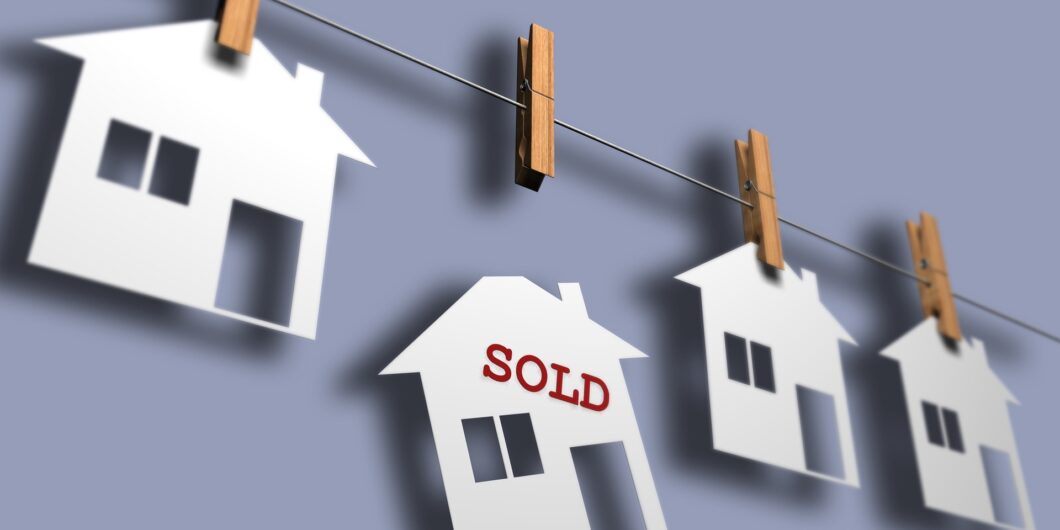
When purchasing a home, there are several pitfalls to avoid these 12 home buyer mistakes. Here are some key things not to do:
Before you start house hunting, it's crucial to get pre-approved for a mortgage. This process involves providing your financial information to a lender, who then assesses your creditworthiness and pre-approves you for a specific loan amount. This not only demonstrates to sellers that you are a serious buyer but also gives you a clear understanding of your budget, helping you avoid falling in love with a house you can't afford.
A home inspection is a non-negotiable step in the home-buying process. Hiring a professional inspector to thoroughly evaluate the property can reveal hidden issues that might not be obvious to the untrained eye. Skipping this step can lead to costly surprises after you've already purchased the home. It's essential for your peace of mind and financial security.

3 hidden costs of home ownership
One of the most common home buyer mistakes is exceeding their budget. While your lender may approve you for a certain loan amount, it doesn't mean you should spend it all. Overextending financially can lead to financial stress, and you may struggle to make mortgage payments comfortably. Stick to a budget that leaves room for unexpected expenses and future financial goals.
Your mortgage is just one part of the cost of homeownership. Property taxes, utilities, homeowners' insurance, and maintenance can add significantly to your monthly expenses. Make sure to factor in all these costs when determining what you can afford and avoid being surprised by the full financial picture.
While you may plan to live in your new home for many years, it's wise to consider the property's potential resale value. This ensures you are making a good long-term investment and helps you avoid common home buyer mistakes. Think about the location, the neighborhood's desirability, and the home's features that could impact its value over time.
Lenders often re-check your credit just before closing to ensure your financial situation hasn't changed. Making significant purchases or taking on new debt can affect your credit score and your ability to secure the mortgage. It's best to wait until after you've closed on your home to make major financial commitments.

Mortgages come in various forms, such as fixed-rate and adjustable-rate. It's essential to understand the terms of your loan, including interest rates, the duration of the loan, and any potential adjustments. This knowledge ensures you can plan for your financial future and avoid any common home buyer mistakes or surprises when it comes to your monthly mortgage payments.
One of the most common home buyer mistakes is letting emotions solely dictate your choices. Purchasing a home is an emotional experience. Letting emotions solely dictate your choices can lead to poor decisions. Don't rush into a purchase just because you fell in love with a property. Take the time to assess whether it aligns with your financial and lifestyle needs.
Your home is not just the building itself; it's the neighborhood and amenities that come with it. Neglecting to research the area can lead to dissatisfaction and is one of the common home buyer mistakes in the long run. Investigate the quality of schools, safety, proximity to work, shopping, and other factors that matter to you.
Real estate agents provide expertise and guidance throughout the home-buying process. They can help you avoid common home buyer mistakes, find suitable properties, negotiate on your behalf, and navigate the complex paperwork. Their experience can save you time and money and provide you with valuable insights into the local housing market.
Think about your long-term plans and how the home fits into them. Will it accommodate changes such as a growing family, a career move, or retirement? Ensuring your home aligns with your future goals can prevent the need for frequent relocations and the associated costs.

Before signing any documents related to your home purchase, carefully read and understand all the terms and conditions. Contracts can be complex, and misunderstandings can lead to legal and financial issues. This is one of the most common home buyer mistakes. If you're uncertain about any aspect, consider seeking legal advice to ensure you are protected.
Purchasing a home is a significant and complex financial decision. Avoiding common home buyer mistakes and taking a thoughtful, well-informed approach to the process can help you make a sound investment and create a comfortable and secure living environment for you and your family.
If you're considering buying a house in Southern New Hampshire give our dedicated Agents a call. We look forward to hearing from you.

Buying a home is an exciting and important decision that requires careful preparation and planning. Whether you're a first-time homebuyer or have experience in the real estate market, there are several key steps you can take to ensure a successful home buying experience. Here are three home buying tips to help you prepare, navigate the process, and choose the right property for your needs:
Preparing to Buy a Home
Before you start searching for properties, it's important to get your finances in order. This includes checking your credit score, getting pre-approved for a mortgage, and determining your budget for the purchase. It's also important to research the different types of mortgages available and choose one that's right for you.

Another key step in preparing to buy a home is to work with a reputable real estate agent who has expertise in the local market. An experienced agent can help you navigate the home buying process, provide valuable insights and advice, and help you find the best available properties that meet your specific needs and budget.
Navigating the Home Buying Process
Once you're ready to start your search, it's important to have a clear understanding of the home buying process. This includes researching properties, attending open houses and showings, making offers, and completing the necessary paperwork and inspections.

One of the most important steps in the home buying process is to have a home inspection. A professional inspection can help identify any issues or problems with the property, such as structural damage, plumbing or electrical issues, or other potential hazards.
When making an offer on a property, it's important to consider not only the price but also any contingencies, such as inspection or financing contingencies, that may be included in the offer. Working with an experienced real estate agent can help ensure that your offer is competitive and includes any necessary contingencies.
Choosing the Right Property
When choosing a property, it's important to consider a range of factors, such as location, size, and condition of the property. It's also important to consider any additional features or amenities that may be important to you, such as a backyard or a garage.
Another key consideration when choosing a property is the potential for future appreciation. This includes factors such as the location of the property, the local real estate market, and any upcoming development or infrastructure projects in the area.
Ultimately, the key to a successful home buying experience is to be patient, do your research, and work with experienced professionals who can help guide you through the process. By following these three home buying tips, you can find the right property that meets your needs and budget and enjoy a successful and fulfilling home ownership experience.
If you are thinking of buying or selling a Southern NH house for sale, give our agents a call and we can discuss your options. Call Harmony Real Estate at (603) 883-8840 for more information today! Visit our website www.Harmony-RE.com for tips on buying a Southern NH house for sale. We would love to help you with all your home buying and selling goals. We are the agency in tune with your real estate needs!

A seller’s agent is a real estate agent that exclusively represents the seller of a house for sale in a real estate transaction. There is a contract between the property owner (otherwise known as the seller) and a real estate agent (also known as the seller’s agent) agreeing to sell your South Hudson home for sale. The contract requires the real estate agent to perform exclusive confidential duties for the seller such as researching recent selling prices for comparable properties in South Hudson NH, showing the property, marketing the property, and advising the seller on the best offers received for the listing. A Hudson seller’s agent must hold an active license in the State of New Hampshire under the New Hampshire Real Estate Commission. They may also be referred to as a listing agent.
A real estate agent is expected to make the home selling or buying process easier for you. Here are some things you should expect from a seller’s agent.
Price Your Hudson Home Right
Pricing your South Hudson NH home for sale properly is very important when you are a seller’s agent. An exceptional agent will price a home using their knowledge, training, and understanding of the market and comparable sales in the surrounding area. Knowing how to price a home for sale is one of the many valuable skills a REALTOR® can give you as the seller. If you are a smart seller, you will find an agent that will price your home based on the selling price of other similar homes that have recently sold in South Hudson.
If you have updated your home, then it will most likely be priced for more than you bought it for but it all depends on the current market. Currently, we are in a seller’s market and prices are rising yearly. As a seller, you should be aware that pricing your South Hudson home for sale to high can cause problems with the sale. If your Hudson home for sale is priced too high, buyers will most likely look elsewhere.
Communication is Key
A well-trained Hudson sellers agent must communicate properly with the seller. You need to know what’s going on with the sale of your South Hudson NH home. There are too many real estate agents that will only check in when they receive an offer, and that is not proper etiquette as an real estate agent. Real estate agents should always keep in touch with their sellers, especially after a showing so they can give any feedback, or discuss any concerns with you about your South Hudson home for sale.
Even if there aren’t any offers on your home, it is still comforting for your agent to keep in touch so you know you are getting what you’re paying good money for!
Verify Buyer Qualifications
Anyone can say that they are interested in purchasing a Hudson home for sale, but not everyone can get a pre-approval for a home loan. A good sellers agent will be sure that anyone making an offer on your home is qualified, and pre-approved for a home loan, and if not they will kindly decline their offer until they provide proof.
There is a very big difference between a mortgage pre-qualification and a pre-approval. A pre-qualification means that they are qualified, but that doesn’t mean that they will be approved for the loan. A pre-approval means that the lender checked the buyers credit report, as well as their employment, and their income, which are key factors in getting a loan commitment. Loan commitment is the step just before closing, it means that the bank is agreeing to lend the buyer the money for their South Hudson home purchase.
Negotiate for You
Your seller’s agent should always negotiate and work their hardest for the best terms and conditions of the seller. When you hire an agent who isn't worried about when their next sale takes place, you will get much better advice, and a much better outcome. REALTORS® who advocate for their clients are always striving for the best possible terms for the transaction and their client.
Everything in a real estate contract is negotiable, and a good Hudson seller's agent won't hesitate to take an offer for your South Hudson home for sale that will make you happy. If you want the sale of your South Hudson home to be closed at a certain time, they have the negotiation skills to make that happen. It’s best to negotiate this all at the onset to make sure everyone will be on the same page for closing. A good agent will understand the importance of getting things done on time and in an orderly fashion for you, their seller.
Attend the Home Inspection
A seller's agent should attend the home inspection to be sure that they can properly represent you properly. This is why you are paying a REALTOR®, to make things easier for you when selling your South Hudson home for sale. Although you may not expect them to attend the home inspection, they should do it regardless. Your agent can keep track of everything that the inspector states about the home, as well as see anything they may find wrong.
This will also help your sellers agent to protect you from any unreasonable requests, and help them to hear everything first hand. Some buyers may try to exaggerate about everything in hopes that you will make any repairs needed, or that they will be able to purchase your South Hudson home cheaper than the listed price. Home inspections often become the second time where more negotiations are made on your South Hudson home for sale.
Finalize Loose Ends
Selling a Hudson home for sale involves a lot of work. Your REALTOR® must be on top of everything. There are many small details that must be taken care of which is a big selling point for their services. As you get closer and closer to closing your Hudson home for sale, your real estate agent needs to relieve your stress and take care of all the loose ends for you. The less work you have to do, the more appealing your REALTOR® will be. Then you will be more likely to recommend their services to others seeking a real estate agent to help them sell or buy a South Hudson home.
If you are looking to buy or sell a home in South Hudson or in the surrounding area give us a call. The agents at Harmony Real Estate will keep your best interests in mind.